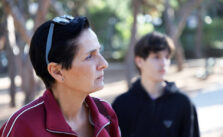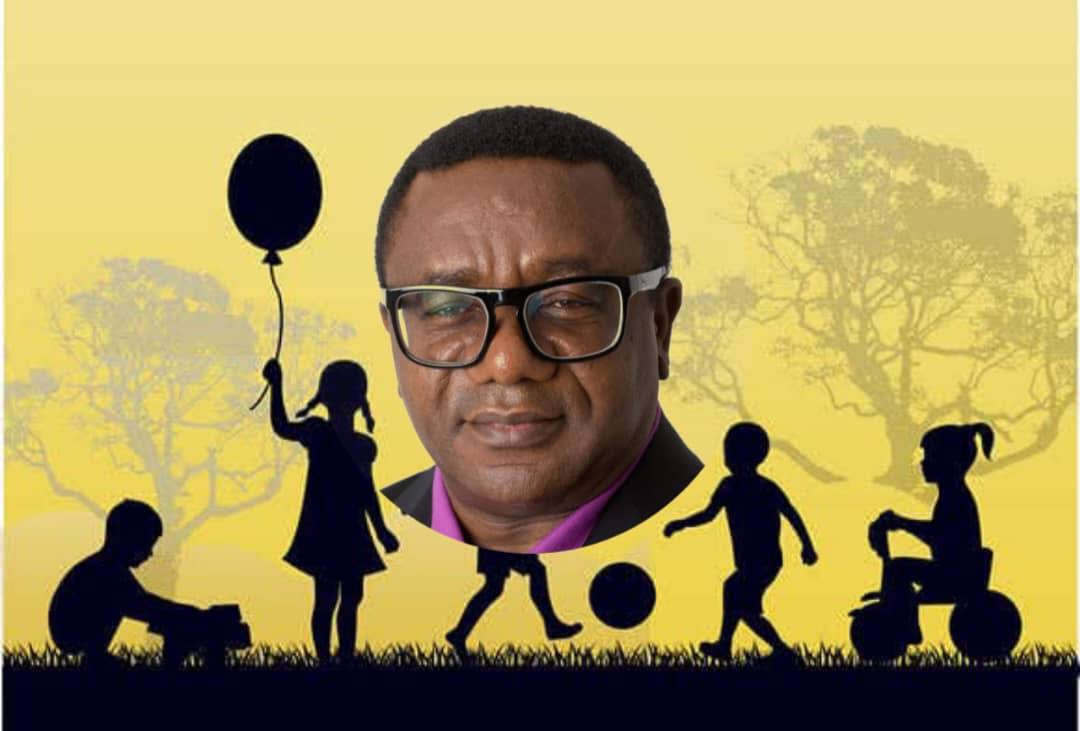Alexandra Chaini, a journalist, decided to have a child in her 40s. As she told Kathimerini, “I wasn’t pursuing a career before that, I was living the life people in their 30s live.” She and her partner, knowing they wouldn’t have a second child, weren’t swayed by societal expectations. “It was a taboo: ‘One child equals no children,’” she said.
At our meeting one afternoon in a park in the Athenian suburb of Psychiko, her 14-year-old son, Iasonas, a 9th grader, is with her. “He’s never missed having a sibling,” she said, and Iasonas agrees. “There are so many only children now, it’s no longer an issue,” she added.
Financial and emotional resources
For 53-year-old teacher Dimitra Pournara and her 49-year-old husband, engineer Giorgos Arkoulis, having just one child was a straightforward decision. “Yes, we considered having a second child, but we decided against it,” Dimitra told Kathimerini. The couple have a 10-year-old daughter, Sofi.
“It was during the financial crisis, and I lost my job, so that played a part,” she explained. “We wanted to give our child everything she needed and ensure she had a good quality of life.
“If circumstances had been different, I probably would have had another child, not for myself, but so Sofi could have a sibling,” Dimitra added.
Raising a child, they note, requires both financial and emotional resources – something many couples no longer have. “It takes time and energy to raise a child properly,” they said. “It’s not just about physical growth or education. A child needs good upbringing, communication with parents and the tools to navigate the world. All of this requires emotional reserves.”

Dozens of concerns
The financial aspect was just as important for 33-year-old network engineer Antonis Demenegas and 36-year-old psychologist Maria Apostolopoulou, who recently welcomed a baby boy. For Maria, who has always prioritized her career, “the decision took a little longer,” she said. For Antonis, it was equally important to progress in his career while ensuring the right conditions to have a child.
As a self-employed professional and owner of her own psychotherapy center, Maria had to return to work soon. Her emotions were mixed. “Reconnecting with my professional identity was crucial for who I am and to keep in touch with past parts of myself. But on the other hand, I struggled with the thought of leaving him – emotionally and because I felt it was too soon. I wished I could stay at least three more months, but there was no possibility,” she explained.
The couple is already concerned about choosing a school. “My first thought was private school, because of the opportunities, activities and resources it could offer. It’s very expensive, but the state school option feels like a gamble,” Antonis said.


‘Something is slowly starting to move’
Both Antonis and Maria believe government support is insufficient, pointing out that meeting the income criteria to qualify for assistance is challenging. “When it comes to buying a house, don’t even think about it. There’s no money for that, not with the ‘Spiti Mou 1’ [My Home 1] housing program or its successor ‘Spiti Mou 2’ [My Home 2],” the young father said when asked about purchasing a home.
Regarding benefits, Maria explained, “There’s a 2,400-euro benefit. So yes, we used it, but the baby is only 3 months old, and we’ve only received the first installment.”
“For me, the main issue wasn’t the benefits,” she added. “I have many friends who are freelancers. We think a significant help would be receiving about 700 euros for a period of time, just to cover office expenses that keep accumulating while you’re not working.” Overall, Maria feels that change is beginning. “They’re starting to realize they need to take action and support new families. For example, Antonis took paternity leave.”
Antonis confirmed he took about three weeks of paternity leave and is now using child care leave, which gives him one day off per week for the next four years. “This was very important so Maria could work and I could also be involved in caring for our child,” he said.
Dimitra agreed there should be more support, noting that the current benefits don’t make a significant impact. “My daughter needed 130 euros just for her English books,” she added. “There’s also a big issue with child care. I could leave my daughter at school until late with extended hours, but that would mean she’d come home exhausted and wouldn’t study. So, I avoided working during those hours.”
First qualitative study on demographic trends
A recent qualitative study on Greece’s demographic trends, conducted by the research team at Aretaeio Hospital under Professor Nikos Vlachos, in collaboration with Metron Analysis and the Ministry of Social Cohesion and Family (April 2024), found that marriage and starting a family are among the lowest priorities for young people.
Key findings show that 24% of participants would like to have two children, while only 5% want three. The desire to have children typically emerges after the age of 29. Only four in 10 consider having children likely, citing financial constraints, insufficient state support and concerns about the world their children will grow up in. Career, quality of life, travel and securing stable housing are also factors that delay the decision to start a family.
Professor Vlachos, commenting on the study, said: “You can’t tell a woman, ‘Don’t pursue a career to have a family.’ That era is over. We need systems that allow women to study or work while also having a family – such as daycare services in hospitals or factories. Men also need support – if you have your first child before 30, you shouldn’t be taxed for five years.”
Sophia Zacharaki, minister of social cohesion and family, noted: “The decision to have children is less linked to financial status than we often think. Researchers found that the root issue lies in personal choices. Based on these findings, the ministry is focusing on measures to support young couples in having a second child or any child at all.”
Zacharaki added: “The research helped us sharpen our focus, but we understand that any measures will require long-term effort and continuous adaptation to be effective. Realistically, our goal is not to reverse the decline in birth rates but to slow it. It would be unrealistic to expect immediate results after 40 years of decline. The hard data doesn’t allow us to entertain false hopes. Over the past five years, the number of women of reproductive age has dropped by 150,000.”
How does a couple decide?
“We heard about the measures, but I’m not sure we can trust how they’ll be implemented,” Alexandra said. “Giving a few thousand euros to a couple to have a second child doesn’t seem reasonable to me. We’re not living in the 1950s. We’re independent people who make our own choices. Maybe it works in remote areas of Greece where people lack basic needs. But not for the general population, for those just starting their families,” she added.
“As for having a second child, we want to, but whether we’ll have the means, in every sense, I don’t know,” said Maria. “For now, all our focus is on our little one. Having a child is a huge responsibility. It’s no small matter. Everyone needs to understand that.”
Second-largest population decline in the EU
- Eurostat data reveals that Greece experienced the second-largest population decline in the EU in 2023, with a decrease of 56,000 people compared to the previous year.
- In 2023, Greece recorded 71,000 births and 127,000 deaths. Since 2011, the country’s population has been steadily shrinking, with a total decline of 6% (660,000 people) over the past decade.










